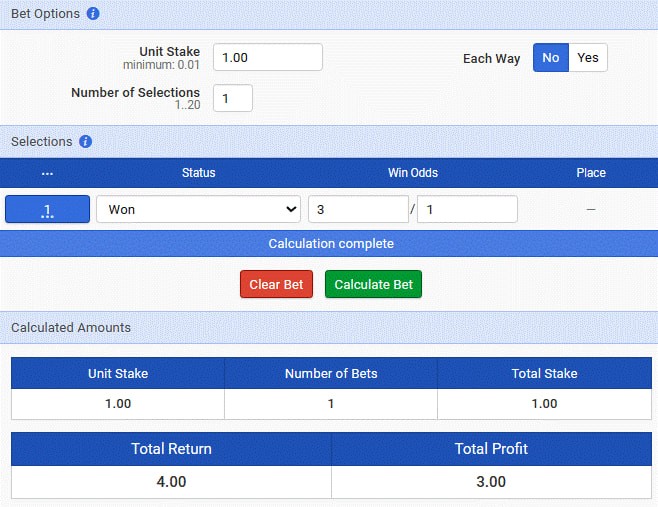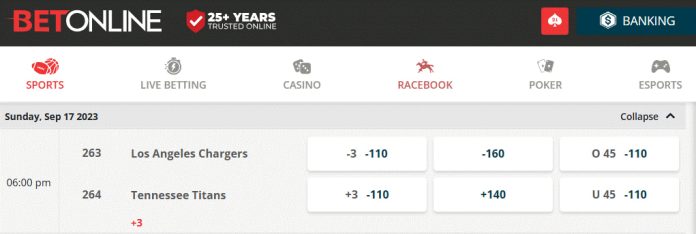A unit in betting represents the measurement of a bettor’s stake placed on a bet, and is also the percentage of a bettor’s bankroll.
To help understand ‘what is a unit in betting?’ further, our comprehensive guide looks at formulas for calculating your unit bets and tips so you can incorporate them into your sports betting unit strategy.
What is a Unit in Betting?
What does unit mean in betting? Overall, it refers to the amount of money you stake per bet. Units in betting are based purely on a bet’s size, not the odds. They are used to standardize how bettors measure their betting performance without factoring in the actual dollar amounts. Notably, all units in sports betting should be of a fixed value, making a flat-rate betting approach (staking the same amount of actual money per bet) necessary for unit betting to work.
A unit can also be flexible, so a bettor might place a one unit bet or a two unit bet if he thought there was more value or felt more strongly about the bet. Placing larger betting units, along with the odds, is what decides the amount of betting units won.
How Much is a Unit in Betting?
The size of a unit in sports betting varies from one bettor to another, depending on each bettor’s standard stake amounts. For example, if you stake an average of $20 per bet, one unit would be $20. In contrast, if another bettor stakes an average of $100 per bet, their unit size is $100.
Overall, most bettors usually determine their unit sizes based on a percentage of their bankroll, usually 1% to 5%. For example, if your bankroll is $1,000 and you decide to stake 5% of the amount per bet, your betting unit would be $50 (0.05 x $1,000). Using a bet calculator makes calculating units easier and quicker, especially the staking part which can often be tricky.
Betting units should be fixed, as explained. But, what do you do if you want to stake more money than your betting unit? You don’t need to adjust the standard betting unit’s size. Instead, you can stake more units on the bet. For example, if your standard unit size is $20, you can stake two units, bringing the total stake to $40. To this end, unit sizes reflect a bettor’s confidence in a bet selection based on factors such as good odds or lower risks of losing.
How to Place Sports Bets Using Units
With the global sports betting market expected to be valued at $155.49 billion by 2024, now is a fantastic time to get involved with sports gambling, especially as there are so many bonus bets up for grabs.
Knowing how to stake correctly also remains key – this is where unit betting can help. While unit betting can be tricky, adopting a calculated approach to using a unit in sports betting helps. Overall, you can use the following two models when placing unit bets:
Fixed Unit Model
The fixed unit model is the most basic and conservative method of placing unit bets. It involves staking one standard fixed unit (such as $20 or $40) on a single wager. For example, you can stake one unit on a soccer match between Arsenal and Manchester United, another unit on a different match, and so on. Overall, making a profit depends on your winning rate and the individual bet selections’ odds.
Variable Unit Model
The variable unit model involves staking multiple units on multiple high-confidence and low-confidence wagers. For example, you can stake varying betting units on ten separate wagers. You can still make a profit if only two of the wagers win by staking more betting units on the winning bet selections and fewer units on the losing selections, assuming that the two winning bets have good odds. So, staking five units on each of the two winning bet selections, say at odds of 3-1 (for a total stake of 10 units), and one unit on each of the eight losing selections (for a total stake of eight units), that still leaves you with a profit of 22 units (2 wins x 15 units – 8 losing units = 22).
How Do I Calculate Units?
Unit sizes vary from one bettor to another. Ideally, you should base your units on a percentage of your bankroll. For example, you can set your units at 1% of your bankroll – the unit’s size would be $10 given a $1,000 bankroll. Using a betting unit calculator can help you determine the most suitable unit size.
Besides determining your unit sizes, you also need to learn how to calculate the returns on each unit. Here is an illustrated example of how it works based on an NFL game between Los Angeles Chargers and Tennessee Titans:
Staking a unit of $20 on the Los Angeles Chargers gives you a return of $32.50, giving you a profit of $12.50. The team has odds of -160, which includes a 10% tax levied by the sportsbook. As such, your winnings are 10% less than your standard unit size – ideally, your profit should be $20, not $12.50.
Unit betting requires you to compensate for the 10% difference in your unit and profit. You can do this by staking 1.1 units, where the 0.1 units cover the 10% tax deduction. To this end, you should bet $22 (instead of $20) to get a total return of $42, giving you a profit of $20 (equal to your standard unit). The math may seem complex, so consider using a betting unit calculator for ease, speed, and accuracy.
Best Sports for Unit Betting
Unit betting applies to all sports categories and is compatible with all bet types and betting markets. Here is an overview of the most popular sports to use unit betting at the best live sports betting sites:
- Football – The NFL season runs for 18 weeks, from September to January, and consists of 272 games offering plenty of betting markets that you can use with unit betting.
- Basketball – The NBA season runs from October to April, while the College Basketball season runs from early November to early April, providing thousands of betting markets to use with unit betting at the 12 best offshore sportsbooks.
- Soccer – Thousands of games throughout the year, and you can incorporate unit betting into dozens of soccer bet types and betting strategies, including over/under 3.5 goals betting. Different levels of units can also be used for parlays involving numerous teams as the odds for such bets can be big, so only a small unit size may be needed for such a wager.
Different sports may also call for different unit staking, such as horse racing when an each-way bet is placed, which may see one unit allocated to each part of the bet – the win side and the place part. Similarly with golf betting when the each-way terms offered for a player making the top ten of a tournament can be generous, which might see an increase in units allocated if there is value on offer.
Tips for Using Units in Sports Betting
Using units in sports betting is risky. Fortunately, using a reliable sports gambling unit strategy can help you minimize your risks and increase your wins. Here are five unit betting tactics to incorporate into your sports betting strategy:
- Bankroll Management – Most bettors have a limited bankroll, and depleting it quickly is one of the worst-case scenarios. For example, staking big units can quickly drain your account if you lose. Proper bankroll management involves placing manageable unit sizes on your wagers – ideally, never staking more units than you can afford to lose.
- Consistency – Ideally, your unit sizes should be standard, meaning that you should stake the same amount per wager. Ensuring a consistent unit size makes measuring your betting performance easier because you don’t have to factor in variable dollar amounts.
- More Value, More Units – Value betting involves betting on a selection with good odds and a lower risk of losing. The reduced risk of losing and higher probability of winning makes value betting safe, so staking more units on such bets can help increase your potential payout. You can find good odds and early lines at the best online sportsbooks according to Reddit.
- Research Tipsters – Betting tips from other bettors can not only help you pick winning bets, but also help provide knowledge in how they stake their bets by using units. Some tipsters use a ‘point’ as a unit and allocate them on a scale of 1-5 – so a 5 point bet would be the maximum.
- Record Bets with Units Stakes and Review – Reviewing your unit betting records can help identify errors and improve your knowledge on how many units were staked and the success rate. You may find that when more units are staked on a specific sport on which you have more knowledge they actually result in more profit – therefore, it may be worth increasing the unit size in future.








